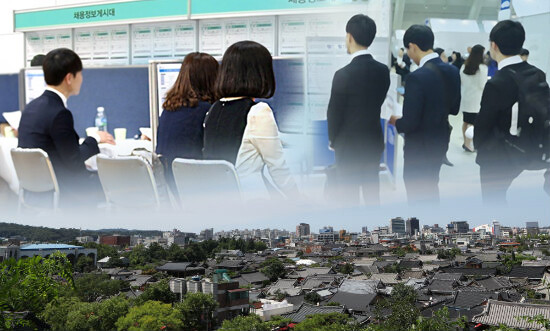
SEOUL—A recent government report has laid bare the widening regional wage polarization in South Korea, demonstrating a dramatic disparity between the nation's capital and its provincial counterparts. Data from the Ministry of Employment and Labor's 'Wage Survey by City and Province as of April 2025' shows Seoul recording the highest average monthly total wage for regular workers at KRW 4,765,000, nearly 45% higher than the lowest-earning region, Jeju.
Jeju, a major hub for tourism, recorded the nation's lowest average wage at KRW 3,279,000. The large gap is directly attributable to the composition of regional economies: Seoul is heavily dominated by high-income sectors, while Jeju's economy is anchored by low-wage service industries such as accommodation and food services. The only other region approaching Seoul's pay scale was Ulsan, a long-established industrial center with a high concentration of large-scale manufacturing firms, reporting an average of KRW 4,750,000.
The root cause of Seoul’s substantial wage premium lies in the structural shift of the Korean economy. Director Kim Jae-hoon of the Labor Market Survey Division explained that while manufacturing historically offered the highest wages, the economic center has pivoted. "Recently, IT has become central, resulting in Seoul's significantly higher wage level," Kim stated. High-paying fields such as Information and Communication Technology (IT), finance and insurance, and professional technical services are overwhelmingly concentrated in the capital, creating an employment and salary ecosystem unparalleled in the country.
'Good Job' Opportunities Funnel to Metropolitan Area
The economic imbalance is not confined to average wages but also affects the distribution of quality employment. A separate analysis by the Korea Employment Information Service confirmed that the gap in "good jobs" between the Seoul metropolitan area and non-capital regions has substantially grown over the past decade.
A "good job" is defined by stringent criteria: employment in a position that ranks within the top 20% of occupational wages and offers a salary above the national average. According to the analysis, the share of these elite jobs concentrated in the Seoul metropolitan area has surged by 5.8 percentage points over 10 years, rising from 21.3% in 2015 to 27.1% in 2024. This increasing centralization of high-value work confirms a deepening structural divide in the labor market. In a troubling trend for the rest of the nation, the proportion of top-tier jobs in non-metropolitan areas has simultaneously seen a decline, intensifying the polarization.
R&D Infrastructure and Talent Exhibiting 'Blackhole' Siphon
The centralization of high-value economic drivers extends further into the crucial domain of research and development (R&D). The capital region is acting as an economic "blackhole," siphoning R&D infrastructure and highly skilled personnel from the provinces.
Professor Kim Jong-han of Kyungsung University presented alarming figures, noting that approximately 70% of South Korea's total R&D expenditure and research personnel are already concentrated within the Seoul metropolitan region. When the scope is broadened to include the 'Mega-Seoul Area,' the concentration becomes even more acute: 85.9% of all R&D expenditure and 80.1% of research and development personnel are located there. This overwhelming geographic bias suggests that the capital is not only monopolizing current wealth creation but is also consolidating the core engines for future innovation and high-tech job growth.
The combined data sends a clear message: South Korea's economic development is increasingly skewed, threatening balanced national growth and raising significant concerns about long-term regional sustainability outside the thriving, yet increasingly dominant, metropolitan core.
[Copyright (c) Global Economic Times. All Rights Reserved.]






























